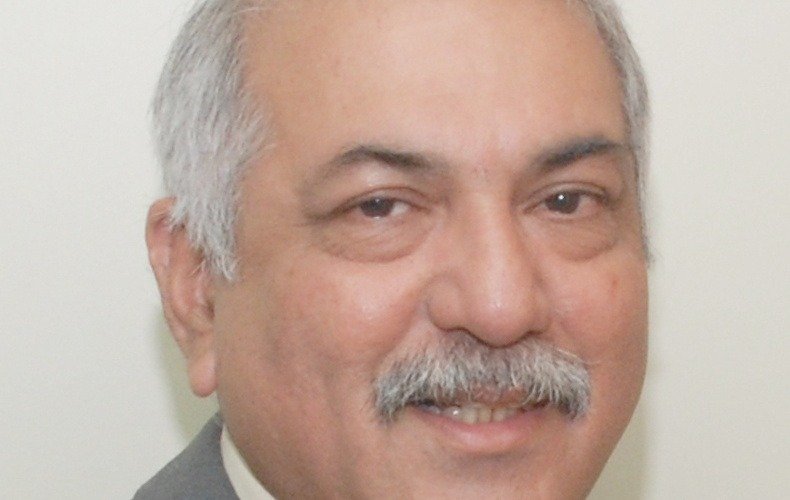
Manguirish Pai Raiker informs about MSMEs being affected due to the pandemic and shares solutions by the Government to help resumption of business activities
MSME is the growth engine of the economy. The new definition has enlarged this segment and nearly 98.8 percent of the industries come under this classification. There are 63.4 million MSMEs in India contributing 29% of India’s GDP, 49% of exports and is the backbone of Indian economy providing employment to nearly 110 million. This was the scenario prior to the pandemic. The first wave nearly crippled this industrial segment. However, the resilient nature and never-say-die attitude of entrepreneurs helped to revive the industry. This was gauged from the GST increasing figures until the onset of the second wave of this pandemic. The second wave literally crushed the industry and trade. The business in certain sectors came to a standstill as the viral attack was severe, reducing the efficiency of the people as also took away many amongst us, delivering a severe blow.
MSME entrepreneurs were just trying to come to terms and were on revival path when the second wave came in. Coupled with lockdown, non availability of workers, difficulty in procurement of raw material, statutory payments of government, and burdened with loan installments and interest had made life miserable. MSME units also suffered from the non-receipt of their dues from their customers. In Goa, the cyclonic damage has multiplied problems for some.
Although regular business was going on, not all had a similar situation, as the demands were fluctuating and some did not have the adaptability to accept the changes and hence suffered. Currently, about 30 per cent of MSMEs are not impacted at all by this second wave. Another 35 per cent of MSMEs sustained scaled down operations, and are in position to return to normal operations as the second wave subsides. About 25 per cent of MSMEs have closed down their operations completely but can restart operations as the second wave subsides. It is estimated that around 10 per cent of MSMEs have closed down operations completely and are unlikely to restart operations even after the second wave subsides.
Majority of the units are looking forward to some or the other assistance to carry on with the business. Responding to the call, Ministry of Finance, Government of India, on account of the disruptions caused by the second wave of COVID 19 pandemic to businesses across various sectors of the economy, enlarged the scope of Emergency Credit Line Guarantee Scheme as under: (i) ECLGS 4.0: a 100% guarantee cover to loans up to `2 crore to hospitals / nursing homes / clinics / medical colleges for setting up on-site oxygen generation plants, interest rate capped at 7.5%; (ii) Borrowers who are eligible for restructuring as per RBI guidelines of May 05, 2021 and had availed loans under ECLGS 1.0 of overall tenure of four years comprising of repayment of interest only during the first 12 months with repayment of principal and interest in 36 months thereafter will now be able to avail a tenure of five years for their ECLGS loan i.e. repayment of interest only for the first 24 months with repayment of principal and interest in 36 months thereafter; (iii) Additional ECLGS assistance of up to 10% of the outstanding as on February 29, 2020 to borrowers covered under ECLGS 1.0, in tandem with restructuring as per RBI guidelines of May 05, 2021; (iv) Current ceiling of `500 crore. of loan outstanding for eligibility under ECLGS 3.0 to be removed, subject to maximum additional ECLGS assistance to each borrower being limited to 40% or Rs.200 crore, whichever is lower; (v) Civil Aviation sector to be eligible under ECLGS 3.0 (vi) Validity of ECLGS extended to 30.09.2021 or till guarantees for an amount of `3 lakh crore are issued; Disbursement under the scheme is permitted up to 31.12.2021.
The modifications in ECLGS would enhance the utility and impact of ECLGS by providing additional support to MSMEs, safeguarding livelihoods and helping in seamless resumption of business activity.
These changes will further facilitate flow of institutional credit at reasonable terms. Industry welcomed this announcement of expanding the role of ECLGS to help MSME at this crucial period. This small help comes as a whiff of fresh air.
Additional ECLGS assistance of upto 10% of the outstanding to the borrowers will enable them to overcome the present financial problems. It would have been more appropriate if SME I classified units were allowed to avail of this benefits.
Industry has also requested for automatic renewals of all statutory approvals for the running businesses without charges for the current year. As most of the businesses are not able to function, there is no revenue, in some cases; key persons have been lost to this pandemic. Government as well as banks needs to look at this situation with compassion and humanity. We hope that State Governments will also respond in line with the way the Central Government and RBI has responded
The author is an industrialist and Chairman of the MSME Council of ASSOCHAM. He was president of Goa Chamber of Commerce & Industry. Email: rsaawni@gmail.com





